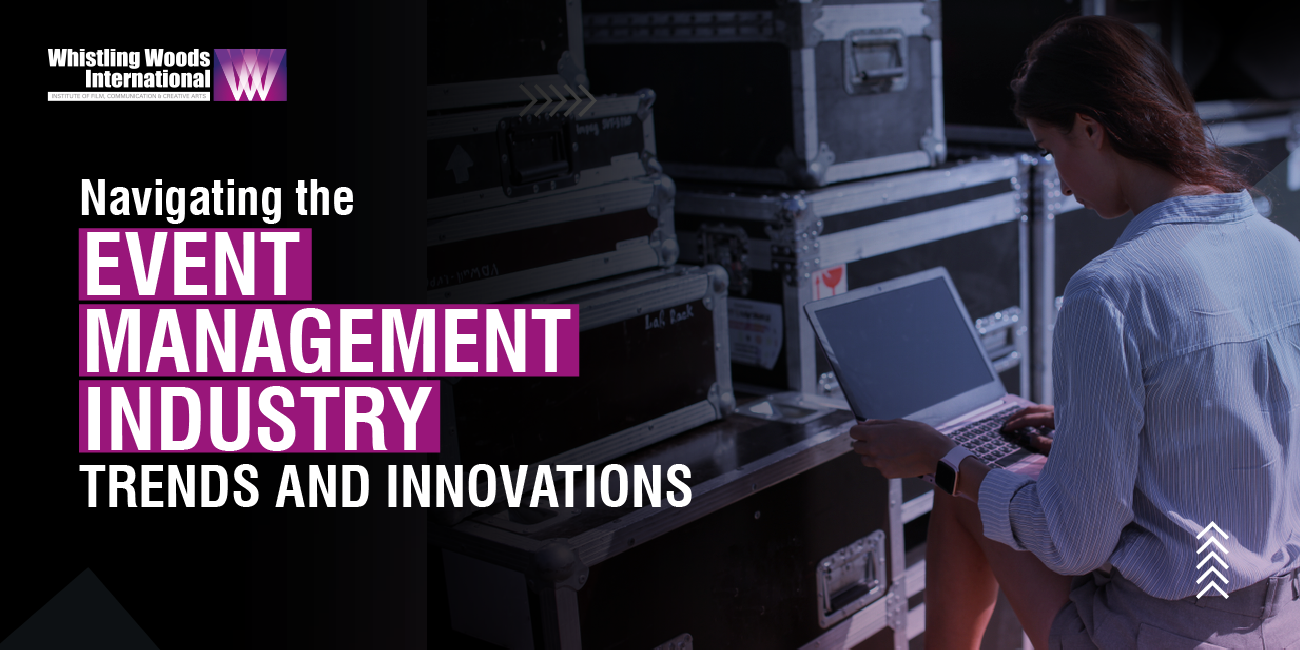From small-scale gatherings to large-scale conferences, the event management industry has undergone a remarkable transformation, revolutionising how events are planned, executed, and experienced.
In the digital era, technological advancements have paved the way for innovative event solutions. And as the demand for exceptional experiences continues to soar, event professionals are embracing trends and innovations that redefine the way events are organised and executed.
With so many advancements coming into the industry, the Asia-Pacific region, including emerging nations like China, India, Indonesia, Philippines, Thailand, and Malaysia, is projected to experience substantial growth at a CAGR of 13.7% during the forecast period of 2021-2028.
In this blog, we will delve into the latest trends reshaping the landscape, such as immersive virtual reality setups, cutting-edge event technologies, seamless online experiences, and more.
Dynamic Trends And Innovations In Event Management:
Here are the latest trends in event management:
Virtual And Hybrid Events:
The COVID-19 pandemic has revolutionised the event landscape, leading to a surge in virtual and hybrid events. Virtual events provide the opportunity for attendees from around the world to participate remotely, eliminating the barriers of travel and reducing costs.
Hybrid events combine in-person and virtual components, catering to local and remote attendees. Event professionals are exploring innovative ways to make these events engaging through interactive features, networking opportunities, and immersive technologies like 3D virtual environments and augmented reality (AR).
Also Read: Reasons Why You Should Pursue A Career In Event Management In India
Collaboration With Influencers And Partnerships:
Collaborating with digital influencers and forging strategic partnerships is an effective way to amplify brand reach and engage with target audiences.
Influencers bring their unique perspectives, creativity, and loyal followers, offering valuable opportunities for event marketing and promotion. Strategic partnerships with relevant organisations or brands can also bring added value and enhance event experiences.
Personalisation And Audience Engagement:
Attendees now expect personalised experiences that resonate with their interests and preferences. Event managers leverage data analytics, attendee feedback, and social media insights to create customised event experiences.
The utilisation of interactive technologies like gamification, Augmented Reality (AR), and Virtual Reality (VR) to enhance engagement, make events more immersive and memorable.
Data-driven Decision Making:
The availability of data has transformed event planning. By leveraging analytics tools and attendee data, event managers can gain valuable insights into attendee preferences, behaviour patterns, and engagement levels.
This data-driven approach helps in making informed decisions about event content, marketing strategies, and resource allocation. It also enables continuous improvement by measuring the success of various event elements and optimising future events based on feedback and data analysis.
Experiential Marketing:
Events are increasingly becoming platforms for experiential marketing, creating immersive brand experiences. Event professionals incorporate interactive installations, sensory elements, and gamification to engage attendees on multiple levels.
These experiences allow attendees to interact directly with brands, fostering emotional connections and long-lasting brand loyalty. Through memorable experiences, brands can create a positive and lasting impact on attendees, increasing brand recall and advocacy.
Also Check: How To Choose The Best Event Management Course?
Sustainable Event Design:
Sustainability has emerged as a critical consideration in event planning. Event professionals adopt sustainable event design principles to minimise environmental impact and promote social responsibility.
It includes choosing eco-friendly venues, reducing waste through recycling and composting, minimising energy consumption, and supporting local communities by sourcing from local vendors. Sustainable event practices not only contribute to a positive environmental impact but also resonate with attendees who prioritise sustainability.
Unlock Your Full Potential With Whistling Woods International
With the infusion of these transformative innovations and the latest trends in the event management industry, formal education becomes a catalyst to elevate your career.
By pursuing an event management course at Whistling Woods International, students can unlock exceptional career opportunities in event management, marketing agencies, corporate organisations, entertainment, and experiential marketing sectors, making their mark in this exciting and rapidly growing industry.
Event management course offered by us:
MBA in Event Management & Experiential Marketing | (2 Years)
Over two years, students engage in a rigorous and immersive learning experience, gaining insights into event planning, execution, marketing strategies, and experiential design. Our programme combines theoretical foundations with practical hands-on training, ensuring students develop a well-rounded skill set.
Hence, if you’re looking to pursue a career in the event management industry, you can check out our website for more information.

